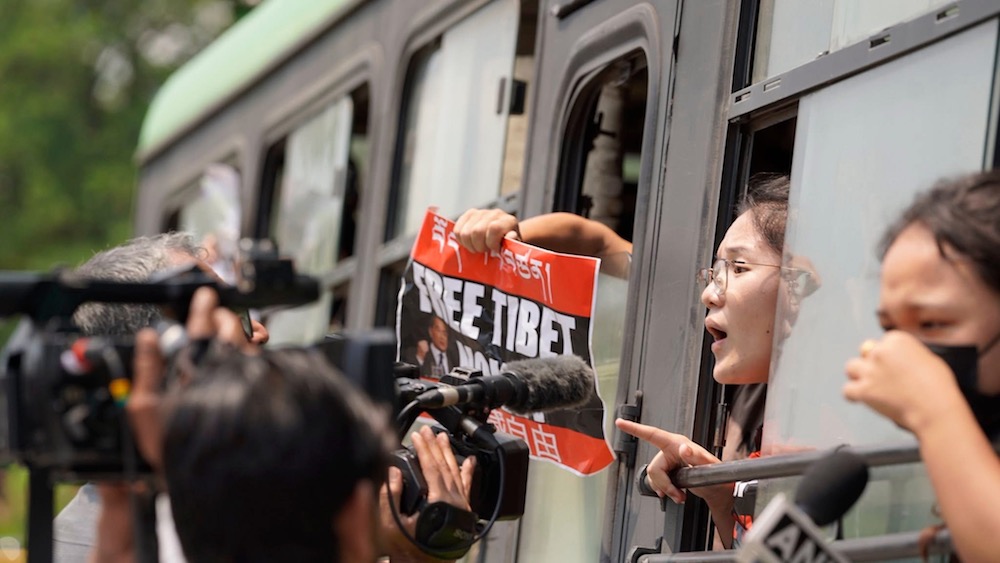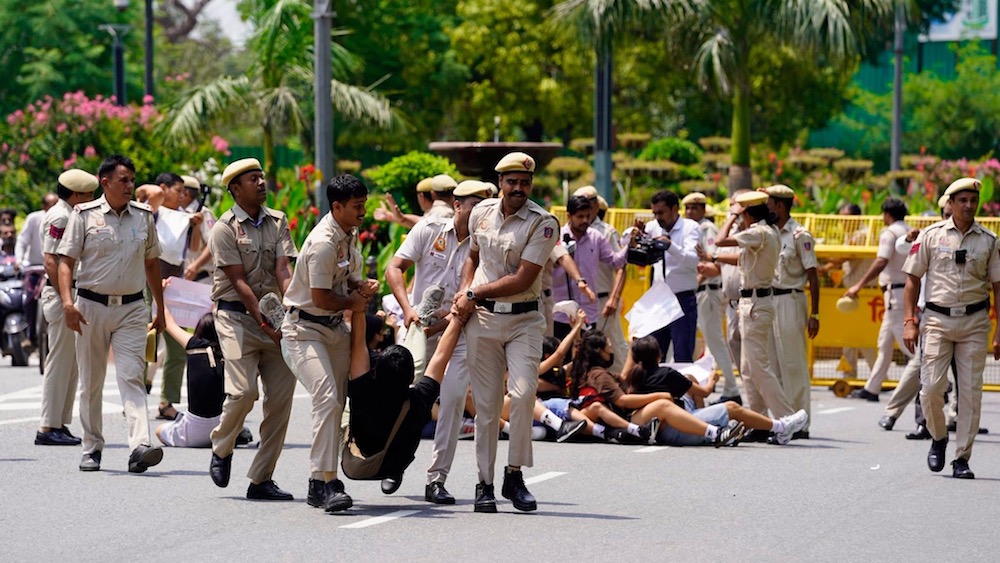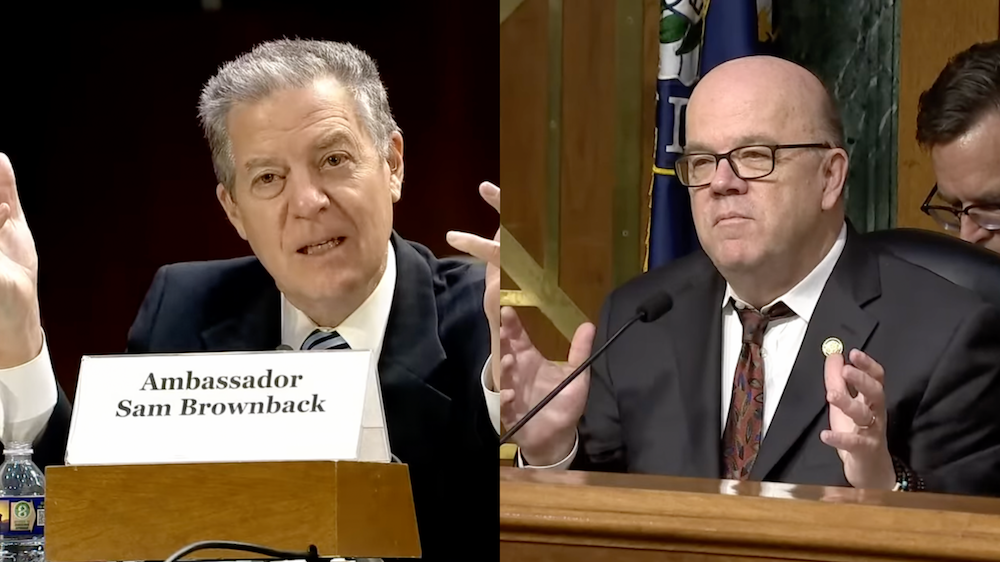Tenzin Nyidon
DHARAMSHALA, Aug. 19: Tibetan Youth Congress (TYC) activists staged a protest once again outside Hyderabad House in Delhi on Tuesday, as Chinese Foreign Minister Wang Yi met with Indian National Security Advisor Ajit Doval under the Special Representatives (SR) mechanism. Around 30 activists were detained during the protest.
The Tibetan NGO also issued a statement during Chinese FM Wang Yi’s visit, urging him to end what it called China’s “cultural genocide” in Tibet. TYC highlighted the forced separation of over a million Tibetan children into colonial-style boarding schools, restrictions on monasteries, persecution of artists and monks, and displacement of nomads under the guise of development.
The group condemned Beijing’s interference in the Dalai Lama’s reincarnation process, reiterating that only the Gaden Phodrang Trust holds this authority.

TYC demanded an immediate end to colonial boarding schools, the release of all political prisoners, including the 11th Panchen Lama, and called on Indian leaders to remain cautious of China’s broken promises, border incursions, and hydropower projects on the Brahmaputra. It stressed that a free Tibet is crucial for India’s long-term security and called on Indian leaders to raise the Tibet issue during talks with the Chinese Foreign Minister.
The meeting between Doval and Wang took place ahead of Prime Minister Narendra Modi’s visit to China for the Shanghai Cooperation Organisation (SCO) summit in Tianjin on August 31–September 1, as formally announced by Doval.
Doval noted an “upward trend” in India-China relations over the past nine months, citing peace along the Line of Actual Control (LAC) and more substantial bilateral engagements. He said Modi’s upcoming visit gave the SR talks “special importance.”
Wang Yi stressed the need to “increase mutual trust,” expand cooperation, and properly address border issues, adding that both sides were “heartened” by restored stability. He described Modi’s trip as an “important opportunity” to improve ties.
While disengagement from friction points has been completed, both countries still maintain around 50,000–60,000 troops each along the eastern Ladakh LAC. The 2020 military standoff formally ended after an October 2024 agreement, with efforts since then focused on stabilizing relations, including resuming the Kailash Mansarovar Yatra and restarting Indian tourist visas for Chinese nationals.










